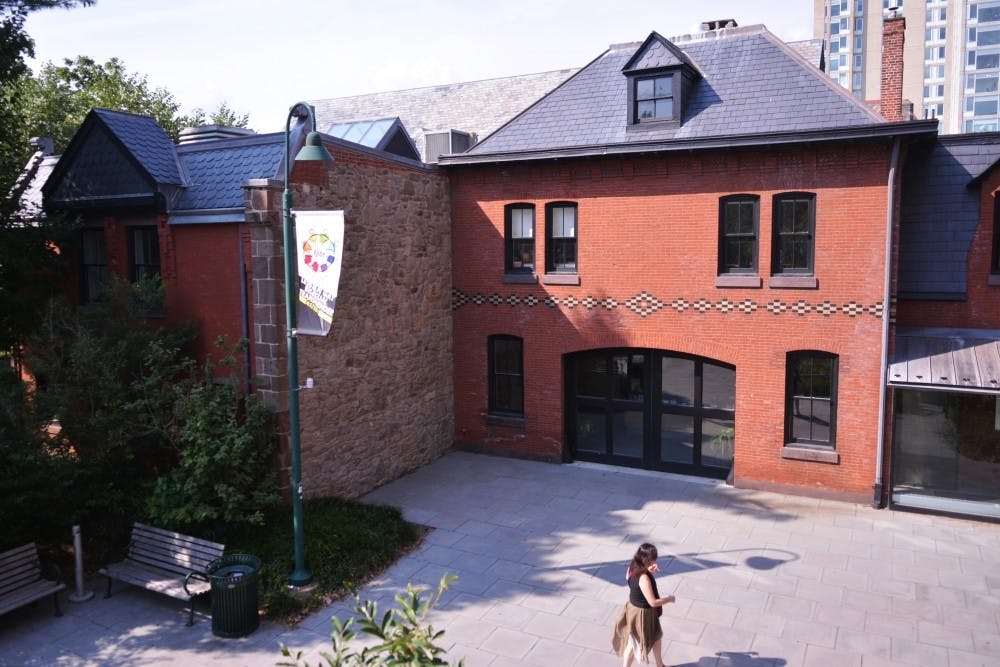
The Penn LGBT Center has gone through many name changes since it was first founded over 30 years ago.
Credit: Sophia LeeA name reflects where a group comes from, who they serve and what they stand for.
It’s no surprise, then, that in the LGBTQ community, the names of groups have changed with the times. The Penn LGBT Center, for example, has not always had the T and wasn't always a specialized center.
“There was no name when we were just hired,” Director of the LGBT Center Bob Schoenberg said. “I was just a member of the staff of Student Life.”
When the now-LGBT Center officially became a center, it was named the Program for the Lesbian Gay Bisexual Community at Penn, a long and slightly unwieldy name.
“Then we became the LGB Center — that I think was in the early 90s,” Schoenberg said. Later, they considered adding the T for transgender at the end of the name, about 20 years ago by Schoenberg's count.
“We did a very careful process where we hired a consultant to work with us to learn more about the transgender community,” Schoenberg said. "We wanted to make sure that we were prepared to serve [them].”
Names of more recent groups reflect trends in identification in the LGBTQ community.
Queer, a word that had in the past been used in a derogatory manner and has since been reclaimed by many, is the term of choice when naming new groups, and almost “all of the new groups, every single one, have queer in the title, except Non-Cis and PennAces [an asexual awareness group],” Associate Director of the LGBT Center Rebecca Schept said. Some examples include Penn Q&A (Queer and Asian), Association of Queer International Students and Queer Muslims and Allies at Penn.
The inclusiveness of the word "queer" is less of a mouthful than the long sequence of letters that each match a single term for different types of identification.
Penn Q&A followed that logic when naming their group.
“It's also a very versatile name — queer and Asian, questions and answers; questioning your identity and allies,” Wharton junior Kevin Lin of Penn Q&A said.
Penn Q&A also draws inspiration “from other Q&A groups across the country, like Brown Q&A and Cal Q&A,” Lin said. “I think Stanford has one too.”
Other groups have names that don't have immediate associations with the traditional LGBTQ terminology. Lambda Alliance, for example, which was created in 2005, is a little vague at first glance.
“Apparently the Greek letter lambda is associated historically with queerness for some reason, so there's actually a number of organizations that use lambda as a name,” College senior Erich Kessel, chair of Lambda Alliance said.
"It might have to do with Lesbos, which was the island on which Sappho lived,” Schoenberg said.
When asked whether they would ever add the Q to the “LGBT” in “LGBT Center," Schoenberg and Schept said there were no plans as of the moment, although they have no qualms about the term itself.
“I think theres a diminishing returns point. You cannot have a string of 9 letters that don't form themselves into a neat word,” Schoenberg said, referring to the numerous and occasionally lengthy acronyms that make up variations of the LGBT acronym.
“I’d say the upside is that it's a more familiar term now. It's more inclusive,” Schoenberg said, referring to the word “queer,” “[but] it’s still not without controversy, and some people don’t like it.”
The Daily Pennsylvanian is an independent, student-run newspaper. Please consider making a donation to support the coverage that shapes the University. Your generosity ensures a future of strong journalism at Penn.
DonatePlease note All comments are eligible for publication in The Daily Pennsylvanian.




